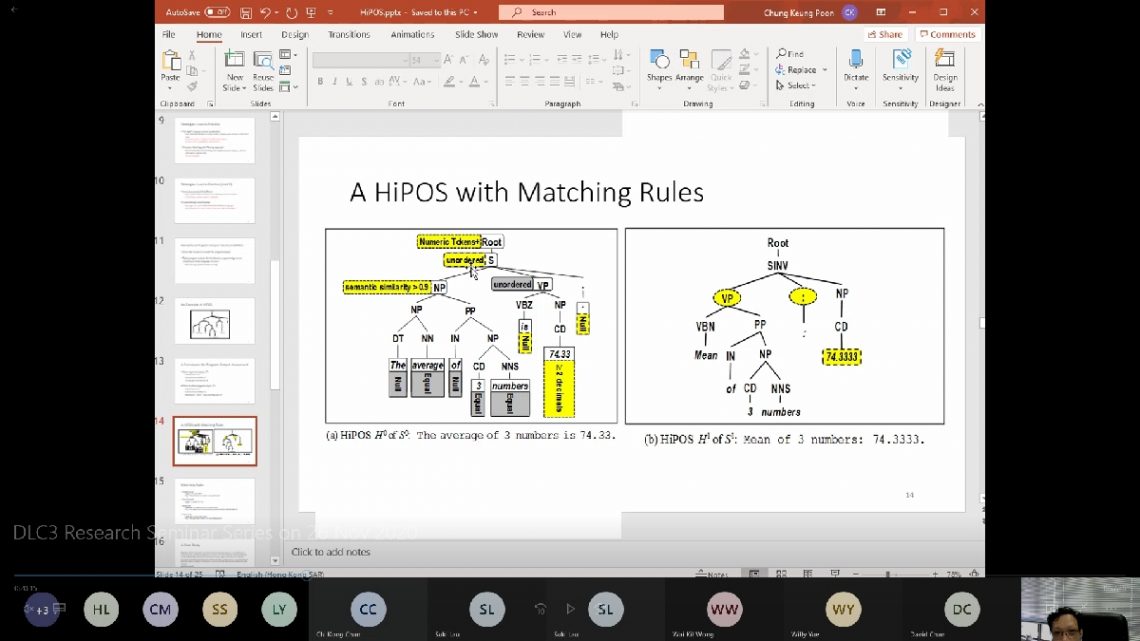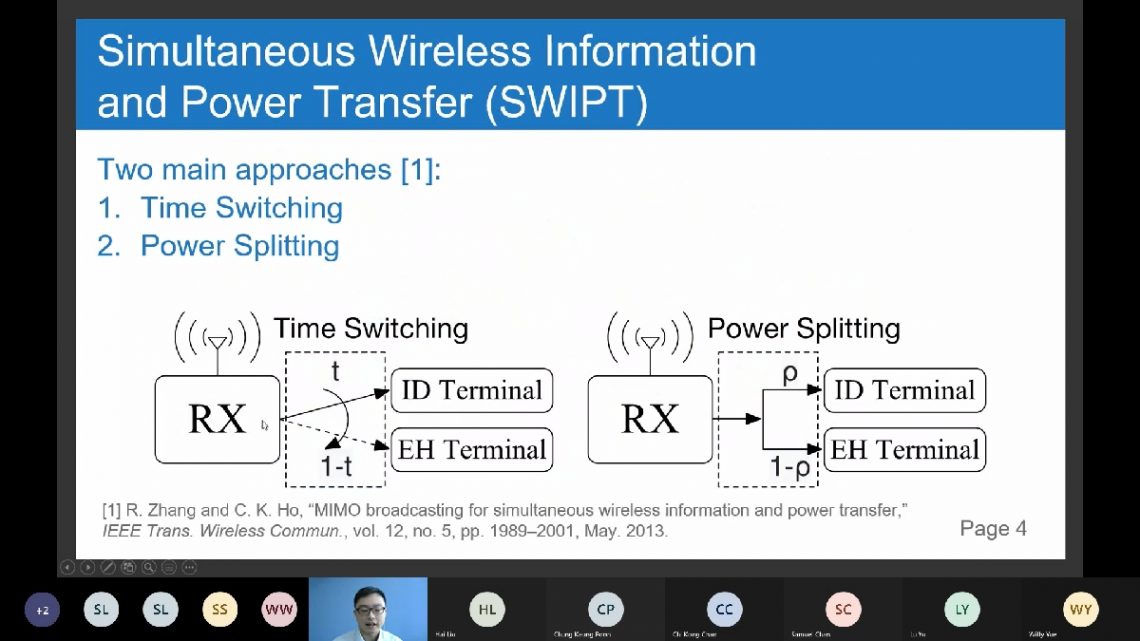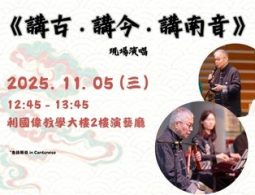26 November 2020
The Deep Learning and Cognitive Computing Centre (DLC3) conducted an online research seminar series on 26 November 2020.
Professor Chung-keung Poon of the Department of Computing first delivered the talk entitled ‘Automatic Analysis of Student Programmes for Assessment and Learning’.
Automatic programming exercise assessment systems aim at determining the correctness of the attempts of programming exercises submitted by students. Recent research focuses on making such systems more flexible in dealing with admissible output variants. In this talk, Professor Poon described some recent progress in this direction, including a new framework, called HiPOS, for automatically modelling and analysing student programme output structure.
On the other hand, Dr David Chan, Assistant Professor of the Department of Computing, delivered the talk entitled ‘Utilising Interference by Network Coding for Simultaneous Wireless Information and Power Transfer’.
With the rapid development of the Internet of Things (IoT), simultaneous wireless information and power transfer (SWIPT) has recently drawn significant attention in both academia and the industry. In this talk, Dr Chan introduced the physical-layer network coding with SWIPT (PNC-SWIPT) scheme. Unlike conventional interference mitigation schemes in wireless communications, the PNC-SWIPT scheme does not minimise the interfering signals at the receivers. The PNC-SWIPT scheme cancels out the undesired messages over a finite field by PNC for information decoding. It significantly preserves the interfering signals, which are beneficial energy sources for energy harvesting.
Related Posts
The HSUHK Outstanding SME ESG and Business Performance Award 2025 Award Presentation Ceremony
The HSUHK Outstanding SME ESG and Business Performance Award was first launched last year, and it has quickly become a remarkable platform to recognize outstanding…
HSUHK Green Eco-Trek Fun Fest
The HSUHK Green Eco-Trek Fun Fest 恒生大學綠遊生態同樂日 marks the finale of our 45th anniversary celebrations. The event comprises two components: a Green Eco-Trek that explores scenic…
HSUHK Information Day 2025
Date: 15 November 2025 (Saturday) Time: 9:30 am – 5:00 pmFeature Talk:• Interactive Seminar: nteractive Seminar: Future vs. Prestige: How to Choose?(Speaker: Professor Joshua Mok…
【1 iGPS – Free Performance】Arts@HSUHK – “The Past and Presence of Naamyum (Southern Tone)”
“Naamyum” is a form of Cantonese narrative singing that originated in Guangdong. It was inscribed onto the third batch of the “List of the Representative…






